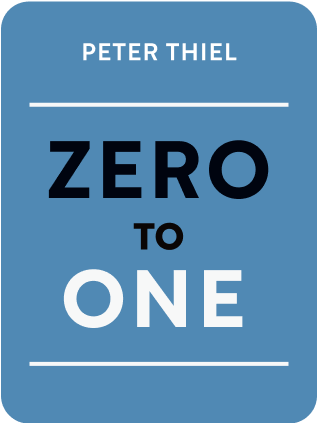

This article is an excerpt from the Shortform summary of "Zero To One" by Peter Thiel. Shortform has the world's best summaries of books you should be reading.
Like this article? Sign up for a free trial here .
What is the power law, and what does it mean for your startup?
The power law is a concept that describes how small changes can have disproportionate results. One example of the power law at work is compounding interest. Power law can also explain why some companies succeed and others don’t.
Power law can tell you a lot about whether or not your startup will be successful. You can use power law to increase your business understanding and launch your startup to success.
The Power Law
The power law is the key to understanding how a handful of startups achieve exponential success. But it’s so interwoven into our social and natural worlds that people often don’t recognize it when it’s operating.
The power law describes a common phenomenon in which small changes can have disproportionate results.
The Pareto Principle, named after economist Vilfredo Pareto, is an example of a power law. In 1906, he determined that 20% of the people in Italy owned 80% of the land. Also, called the 80-20 rule, the principle applies everywhere in nature and society. In his garden, Pareto found that 20% of the peapods produced 80% of the peas.
Compounding interest is also a power law. In fact, compounding is such a powerful concept that Albert Einstein is erroneously credited with calling it “the most powerful force in the universe” and “the eighth wonder of the world.”
This chapter shows how the power law works in the world of startups and venture capital. Venture capitalists invest in startups in the hope that in a few years, a company will “take off” and the investor will profit from the spurt in growth. However, some companies will grow more than others.
The power law says that a few companies will achieve exponentially greater value than all others.
The Power Law of Venture Capital
Venture capitalists search out promising tech startups to invest in for a share of the profits. While many of them don’t fully understand it, the power law greatly influences their results.
If companies in a venture fund portfolio gain value and go public or are sold to larger companies, the venture fund makes money. However, a venture fund typically loses money at first because most of the companies in its portfolio fail soon after starting. The investors hope the fund’s value will shoot up in a few years when the most successful startups experience exponential growth and scale up.
They try to identify companies that will excel, while hedging their bets—which is a mistake. They expect portfolio returns to be normally distributed, with good companies returning two to four times value, average ones remaining flat and some failing. So they aim for a diverse portfolio, which usually fails.
This approach fails because, in reality, venture returns follow a power law: A very small number of companies far surpass all others combined. For your portfolio to succeed, you need to focus on finding those few companies that will be standout performers rather than focusing on diversification. For example, Facebook, the most successful company in Thiel’s Founders Fund, returned more than everything else in the portfolio combined. Palantir, the second-most successful investment in the fund, was set in 2005 to return more than all of the others combined excluding Facebook.
The secret in venture funding is that the top investment equals or exceeds the rest of the fund combined. This means you should invest only in startups with the potential to return the value of the whole fund—which of course eliminates most potential investments.
You still need a portfolio because there are no guarantees. But every company in your portfolio should have extraordinary potential. Find a very small number of companies likely to go from 0 to 1—and back them to the hilt.
When you stop looking for substance and focus on whether a company fits your diversification strategy, your process is akin to buying lottery tickets and you’re setting yourself up to lose.
Missing the Pattern
Venture capitalists often don’t see the power law pattern because they fixate on the present, while the pattern develops over time.
For example, if you invest in ten startups (too many) with monopoly potential, their early returns will look similar. Their values will start to vary from each other over a few years but overall fund growth will still look linear. However, after about 10 years, one investment will shoot up, far exceeding everything else. Power law distributions were there all along, unnoticed.
Investors aren’t alone in not seeing the power law when it comes to startups—no one else does, either.
For example, when most people think of venture capital, they imagine small, off-beat companies like those on ABC TV’s Shark Tank. But they miss seeing the huge overall impact venture capital has on the economy. While less than 1% of the new businesses starting annually get venture funding and venture funding accounts for less than 0.2% of GDP, this funding has a disproportionate impact. Venture fund companies create 11% of private-sector jobs; their combined annual revenue is equivalent to 21% of GDP.
The Power Law in Life
Everyone should be aware of the power law—a minority of effort leads to a majority of results—because we’re all investors.
- An entrepreneur invests by spending time on a startup and therefore should think about the company’s chances of taking off.
- The average person investing in a career should consider how valuable that type of work will be decades into the future.
- Students can learn to think in power law terms and focus intensely on something they’re good at rather than trying to do well on a predefined menu of course and career options. Just make sure the work you’ve chosen will be valuable in the future.
You don’t need to start an extraordinary company to benefit from the law of power. You may find huge success in joining a great company on its upward trajectory. If you do start a company, operate it according to the power law. A narrow focus on the right thing will produce the greatest results:
- One market will bring the greatest success.
- One distribution strategy will outperform all others.
- Some moments will count more than others.
- What’s most important probably won’t be obvious.
Make sure you consider power law when you’re building your business plan. Power law can make a difference in the failure or success of your startup.

———End of Preview———
Like what you just read? Read the rest of the world's best summary of Peter Thiel's "Zero To One" at Shortform .
Here's what you'll find in our full Zero To One summary :
- Why some companies genuinely move the world forward when most don't
- How to build a company that becomes a monopoly (and why monopolies aren't bad)
- Silicon Valley secrets to selling products and building rockstar teams






